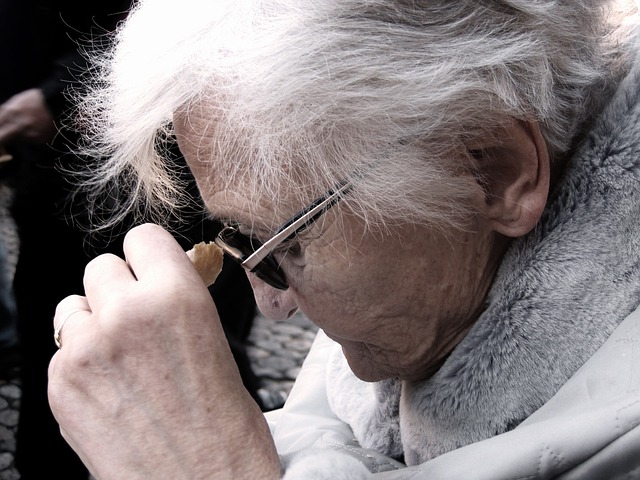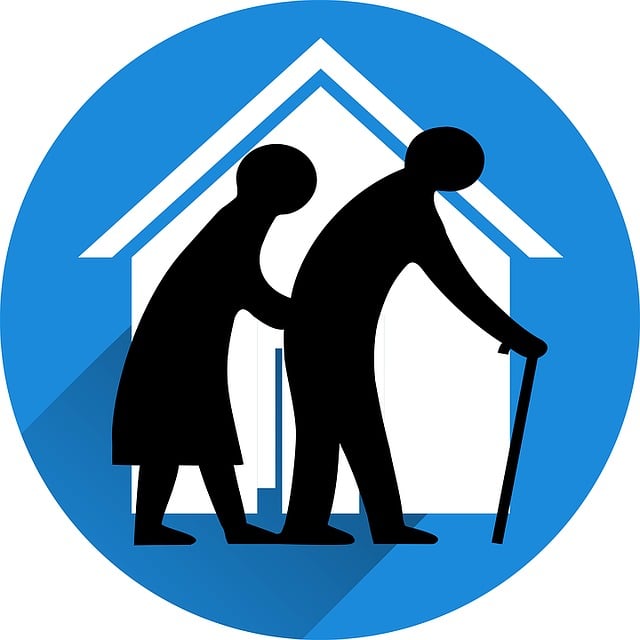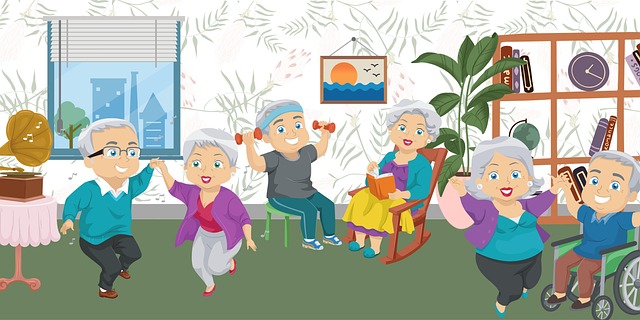Experience Effortless Bathing: Free Assistance in Laguna Vista, Texas
Looking for reliable Bathing Assistance in Laguna Vista, Texas? Experience the ultimate comfort and…….
In the realm of healthcare and wellness, bathing assistance plays a vital role in ensuring the dignity and comfort of individuals, especially those with limited mobility or age-related challenges. This article delves into the concept of Bathing Assistance Laguna Vista Texas, exploring its definition, significance, global impact, economic considerations, technological advancements, policy framework, challenges, successful implementations, and future prospects. By examining these aspects, we aim to provide a comprehensive understanding of this essential service and its role in enhancing the quality of life for many.
Definition: Bathing assistance refers to the support provided to individuals who require help during their bathing or personal hygiene routines due to physical limitations, age-related issues, or specific medical conditions. In the context of Laguna Vista, Texas, a vibrant community with a diverse population, this service is tailored to meet the unique needs of its residents.
Core Components: The primary components of bathing assistance include:
Assisted Bathing: This involves direct help from caregivers or trained professionals in performing various bathing tasks such as showering, bathing, and drying.
Personal Hygiene: Assistance with activities like washing hair, brushing teeth, shaving, and applying skin care products to maintain personal cleanliness and hygiene.
Mobility Support: Aiding individuals in moving safely into and out of the bathtub or shower, using appropriate equipment and techniques to prevent injuries.
Adaptations and Modifications: Making necessary adjustments to bathrooms and providing specialized equipment (e.g., grab bars, elevated seats) to ensure safety and accessibility.
Historical Context: The concept of bathing assistance has evolved over time, reflecting changes in societal attitudes towards personal care and the aging population. Historically, it was often considered a private matter, with family members or caregivers assuming these responsibilities. However, with the increase in older adults and individuals with disabilities, there has been a growing recognition of the importance of professional bathing assistance as a vital component of home healthcare services.
Significance: Bathing assistance is more than just a hygiene practice; it is a fundamental aspect of maintaining personal dignity, self-esteem, and overall well-being. For many individuals, access to this service can improve their quality of life, enable them to live independently for longer periods, and reduce the risk of falls and associated injuries.
The concept of bathing assistance has transcended geographical boundaries, gaining prominence worldwide due to several factors:
Aging Population: Many countries are experiencing a rapid aging of their population, leading to an increased demand for home healthcare services, including bathing assistance. According to the World Health Organization (WHO), the global elderly population is expected to reach 2.1 billion by 2050, placing significant pressure on healthcare systems and services.
Disability Prevalence: The number of individuals living with disabilities is rising globally, often due to accidents, chronic conditions, or age-related deterioration. This trend underscores the growing need for accessible and tailored bathing assistance services.
Home Healthcare Growth: There is a worldwide shift towards providing healthcare services in home settings, driven by patient preferences, cost-effectiveness, and improved quality of care. Bathing assistance plays a crucial role in this context, ensuring that individuals receive personalized care in the comfort of their homes.
Regional Variations: The implementation and perception of bathing assistance vary across regions:
North America and Europe: These regions have seen significant advancements in home healthcare services, including bathing assistance. The United States, for instance, has a well-established network of home health agencies that provide this service, while European countries like the UK and Germany have robust social safety nets supporting elderly care, including personal hygiene assistance.
Asia: Countries in Asia are experiencing rapid urbanization and an aging population, leading to increased demand for bathing assistance. Japan, known for its advanced healthcare technologies, has a well-organized system of home care services, while other Asian nations are investing in improving their healthcare infrastructure to meet these needs.
Latin America and Africa: In some parts of Latin America and Africa, traditional family support systems still play a significant role in bathing assistance. However, with urbanization and changing social dynamics, there is a growing demand for professional services, and governments and NGOs are stepping up efforts to address this gap.
The economic implications of bathing assistance Laguna Vista Texas are multifaceted:
Market Dynamics: The global market for home healthcare services, including bathing assistance, is expanding rapidly. According to a report by Grand View Research, the global home healthcare market size was valued at USD 374.1 billion in 2020 and is expected to grow at a CAGR of 6.9% from 2021 to 2028. This growth is primarily driven by the aging population and increasing preferences for home-based care.
Investment Patterns: Private equity and venture capital firms are showing growing interest in home healthcare, including bathing assistance services. These investments are focused on developing innovative solutions, improving service quality, and expanding access to these essential services.
Cost Analysis: The cost of bathing assistance varies based on several factors, including the level of care required, location, and provider type (private vs. public). In Laguna Vista, Texas, the average cost for home healthcare services, including bathing assistance, ranges from USD 20 to USD 40 per hour, with some agencies offering discounted rates for longer-term engagements or specialized services.
Employment Impact: The demand for bathing assistance creates employment opportunities for caregivers, nurses, and specialists in the home healthcare sector. This can contribute to local economies and provide stable income sources for individuals entering this profession.
Technology has revolutionized various aspects of healthcare, and bathing assistance is no exception. Several innovations aim to enhance safety, efficiency, and accessibility:
Assistive Devices: Grab bars, non-slip mats, shower chairs, and raised toilet seats are examples of adaptive equipment that facilitate safe bathing and personal hygiene for individuals with limited mobility.
Smart Home Technologies: Integrating smart home devices into bathing routines can improve safety and convenience. Motion sensors, automated shut-off valves, and voice-controlled assistants can ensure a safer and more efficient bathing experience.
Telehealth and Remote Monitoring: Telehealth services enable caregivers and healthcare professionals to monitor patients remotely, providing guidance and support for bathing routines. This is particularly beneficial for individuals living in remote areas or those with limited mobility.
Mobile Applications: Dedicated mobile apps offer resources, tips, and reminders for maintaining personal hygiene and bathing routines. Some apps also provide virtual consultations with healthcare professionals, offering personalized advice and guidance.
The provision of bathing assistance is influenced by local, state, and national policies that shape home healthcare services:
Medicaid and Medicare: In the United States, programs like Medicaid and Medicare cover certain home healthcare services, including bathing assistance, for eligible individuals. These policies ensure accessibility and affordability for vulnerable populations.
Aging and Disability Policies: Many countries have developed comprehensive policies to support older adults and individuals with disabilities. These policies often include provisions for personal care services, home modifications, and financial assistance for hiring caregivers or using specialized equipment.
Licensing and Regulation: To ensure quality and safety, most jurisdictions require licensing and regulation of home healthcare agencies providing bathing assistance. These regulations cover staff qualifications, training, supervision, and record-keeping practices.
Incentives and Subsidies: Governments sometimes offer incentives or subsidies to encourage families and caregivers to seek professional bathing assistance services, recognizing the potential benefits for both the individual and their loved ones.
While bathing assistance offers numerous benefits, several challenges must be addressed:
Staffing Shortages: There is a global shortage of trained caregivers and nurses specializing in home healthcare, including bathing assistance. Addressing this shortage requires investment in education and training programs to attract and retain qualified professionals.
Accessibility and Affordability: Ensuring that all individuals, regardless of their financial status, have access to affordable bathing assistance services remains a challenge. Policies and initiatives aimed at reducing out-of-pocket expenses for home healthcare can help mitigate this issue.
Cultural Sensitivity: Bathing is often a culturally sensitive topic, and providing assistance must respect individual preferences, beliefs, and privacy. Culturally competent care requires understanding and sensitivity to diverse cultural practices and norms.
Quality Assurance: Maintaining consistent quality of care is crucial. Regular training, supervision, and feedback mechanisms are essential to ensure that caregivers provide safe, effective, and personalized bathing assistance services.
Several communities and organizations worldwide have successfully implemented bathing assistance programs, leading to improved outcomes for individuals:
The Netherlands: The Dutch healthcare system is renowned for its comprehensive home care services, including bathing assistance. Their approach emphasizes dignity, respect, and individualization of care, resulting in high satisfaction rates among recipients.
Japan: Japan’s aging population has led to the development of sophisticated home care systems, including bathing assistance services. They prioritize technology integration, offering remote monitoring and automated equipment to enhance safety and efficiency.
Aging2.0 (USA): This initiative focuses on creating age-friendly communities by improving access to home healthcare services. Their model includes personalized care plans, leveraging technology for remote support, and fostering community engagement to enhance the quality of life for older adults.
The future of bathing assistance Laguna Vista Texas is promising, with several emerging trends and innovations:
Personalized Care: There will be a growing emphasis on personalized care plans tailored to individual needs, preferences, and cultural backgrounds. This approach ensures that bathing assistance services are sensitive to diversity and enhance the overall well-being of recipients.
Telehealth Expansion: Telehealth services will likely expand, providing remote consultations, assessments, and guidance for bathing routines. This is particularly valuable in rural or underserved areas where access to healthcare professionals may be limited.
Technology Integration: Advanced technologies, such as smart home devices, wearable sensors, and artificial intelligence, will play a more significant role in enhancing safety, convenience, and efficiency in bathing routines.
Community-Based Support: Encouraging community engagement and volunteer programs can supplement formal bathing assistance services, fostering social connections and supporting individuals with diverse care needs.
In conclusion, bathing assistance is an essential component of home healthcare, offering numerous benefits for individuals across various demographics. By addressing challenges through policy reforms, technological advancements, and personalized care approaches, communities like Laguna Vista, Texas, can ensure accessible, high-quality bathing assistance services that enhance the well-being and dignity of all residents.

Looking for reliable Bathing Assistance in Laguna Vista, Texas? Experience the ultimate comfort and…….

Experience unparalleled convenience and independence with our free bathing assistance service right…….

Tired of struggling with personal hygiene? Best Nursing Care at Home in Laguna Vista, Texas offers a…….

Looking for a way to simplify your daily routines while ensuring safety and dignity? Best Caregiving…….

Need bathing assistance in Laguna Vista, Texas? Our personalized care services are designed to save…….

Say goodbye to the struggles of daily bathing and embrace a new level of comfort and independence wi…….

Need bathing assistance in Laguna Vista, Texas? New Level of Comfort is here to transform your daily…….

Reclaim your precious time and live life to the fullest with our Bathing Assistance service in Lagun…….

Experience the ultimate peace of mind with our expert bathing assistance service right here in Lagun…….